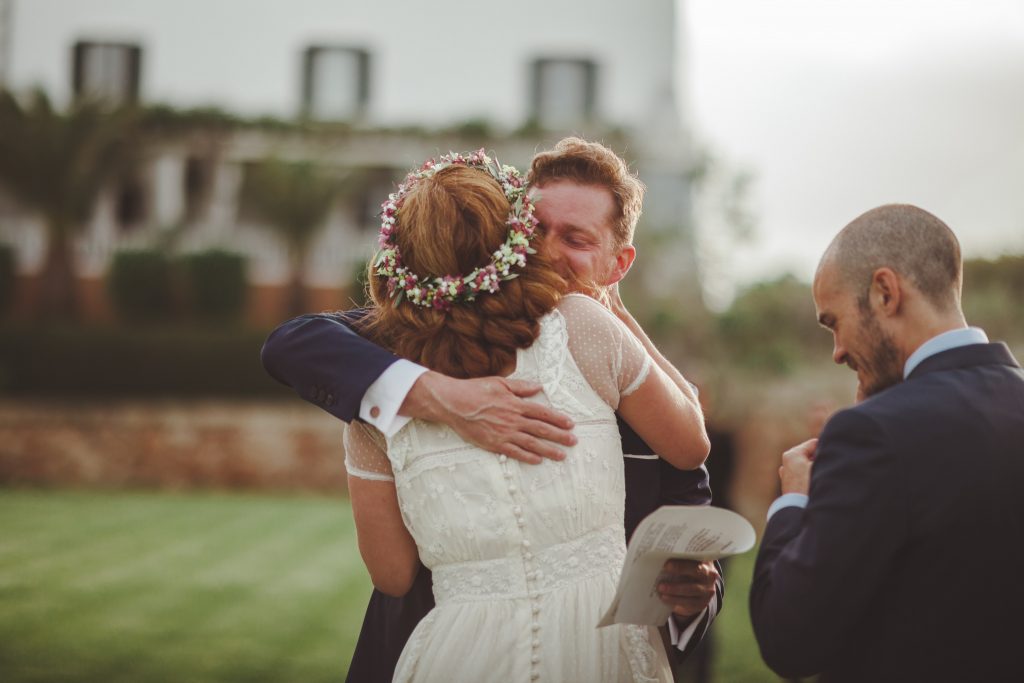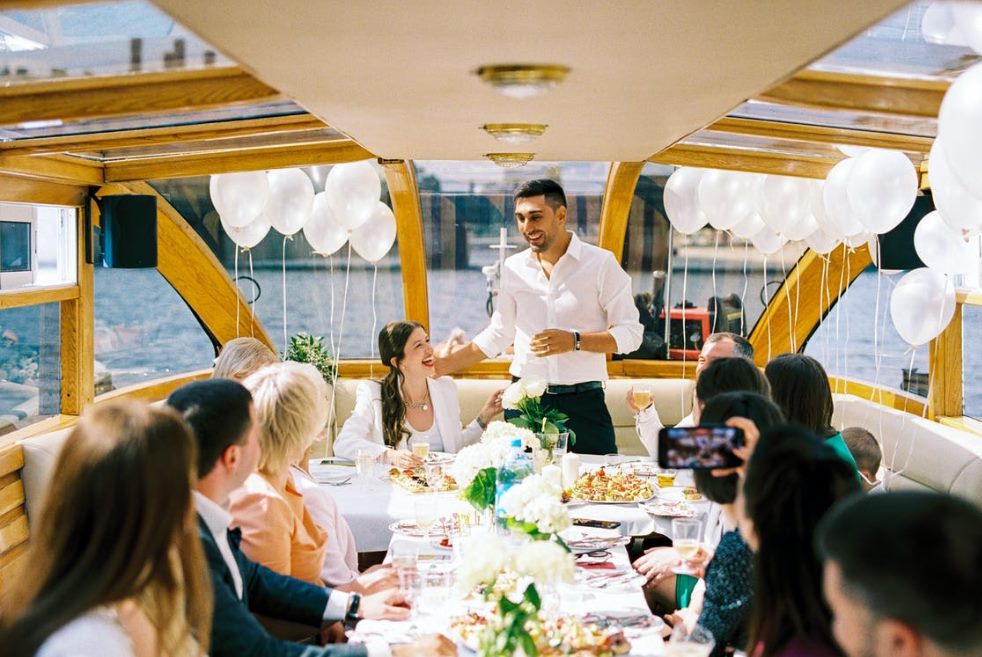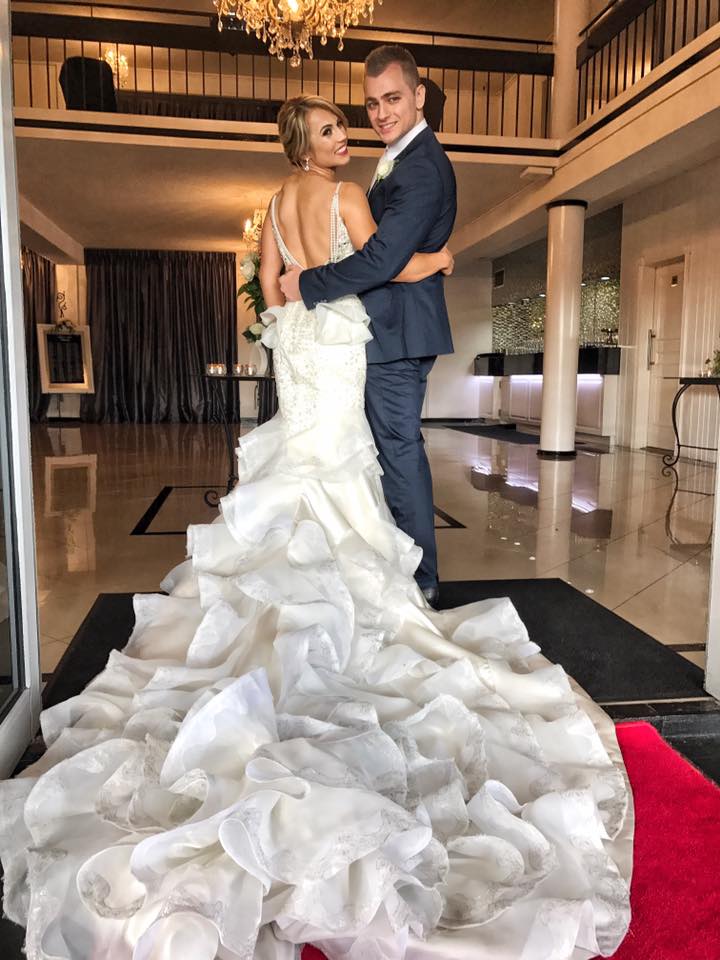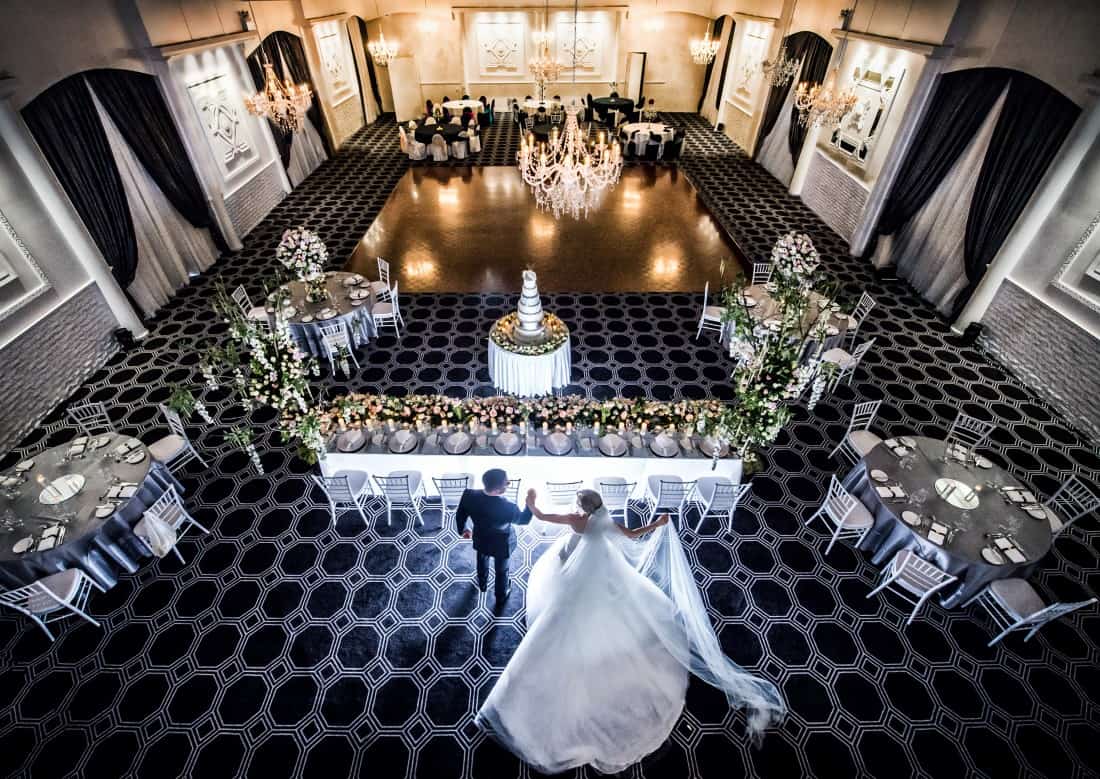Writing unconventional wedding vows allows couples to infuse their personal stories, quirks, and unique connections into one of the most important moments of their lives. Unlike traditional vows that often follow a standard structure, unconventional vows give couples the freedom to break away from tradition and speak from the heart in a way that feels authentic to their relationship.
Whether they incorporate humour, reference shared experiences, or adopt a more casual tone, unconventional vows offer a chance to express love deeply and meaningfully.
Focusing on what makes your relationship special is essential when writing unconventional wedding vows. Consider moments that define your bond—whether it’s a shared hobby, a unique challenge you overcame together, or a memorable inside joke. Crafting vows around these elements makes them deeply personal and reflective of your journey as a couple.
Feel free to experiment with the format and language. Some couples write their vows as poetry, while others may include song lyrics, movie quotes, or playful promises. Ultimately, the goal is to speak from the heart in a way that resonates with both of you and adds a memorable, authentic touch to your ceremony.
Let’s Get Straight to the Point
Writing unconventional wedding vows allows couples to express their unique love story by focusing on personal experiences, shared interests, and specific promises. Unlike traditional vows, they can be creative, humorous, and deeply personal.
Key tips include reflecting on what makes your relationship special, being genuine, including shared memories, and discussing tone and length with your partner beforehand. Drafting and refining the vows ensures they capture the true essence of your love. The goal is to create meaningful, heartfelt, and true vows to your relationship.
Being Able To Express Creativity In One’s Wedding Vows
One of the advantages of writing your vows is the creative freedom you have to tailor them to your relationship. Traditional vows such as “through sickness and in health” and “for richer or poorer” have their place, but you don’t have to stick to these clichés. Instead, you can focus on the elements of your relationship that make it special.
Why Write Your Vows?
- Personal Expression: Writing your vows allows you to express your feelings about your partner.
- Meaningful Promises: You can make specific promises relevant to your relationship.
- Unique Touch: It adds a personal, unique touch to the ceremony.
Researching And Getting Ready For A Wedding Vows
Before diving into writing your vows, it’s essential to do some research. Listen to various vows from different cultures and religions to understand how promises are made in various traditions. This will give you a broad understanding of the sentiment behind vows and help you craft something unique to your relationship.
Questions To Consider
- What do you love most about your partner?
- What makes your partner worthy of this lifelong commitment?
- How has your life changed since meeting them?
- What are you willing to sacrifice for your relationship?
- How do you see your future together?
Reflecting on these questions will help you define the key aspects of your relationship and guide you in crafting meaningful vows.
Introducing Your Spouse In Wedding Vows
Begin your vows by addressing your partner directly. You can start by mentioning their name or use a term of endearment that feels personal to you. This is the person you’re committing your life to, so it’s important that the vows feel intimate and direct.
For example, instead of starting with “I promise to love you forever,” you could begin with, “From the moment I met you, I knew I wanted to spend my life with you.”
Including Shared Interests
One way to make your vows more personal is by referencing hobbies, interests, or experiences you share with your partner. For instance, if you both love travelling, you could include a metaphor about embarking on a lifelong adventure together. Or, if you enjoy cooking together, you might say, “You are the spice to my life, and I promise to always cook up a lifetime of love with you.”
Keeping Your Words In Your Wedding Vows
At the core of your vows are the promises you make to each other. These promises should be personal and specific to your relationship. Think about what marriage means to you and how your life will change after you’re married.
- What do you bring to the relationship that your partner didn’t have before?
- What do they bring to your life that you value the most?
- How will you continue to support and love each other as you grow together?
For example, instead of the standard “I promise to support you,” you could say, “I promise to cheer you on in every endeavour, and when life gets tough, I’ll always be your biggest fan.”
Time And Eternity
Marriage is intended to last a lifetime, so it’s common to use metaphors that express the enduring nature of your commitment. You can be as creative or lighthearted as you want here. Instead of “until death do us part,” you might say, “I will love you until the stars fade from the sky.”
If your relationship has a playful side, include a more humorous or quirky promise that still holds significance. For example, “I promise always to let you have the last slice of pizza, even when I want it.”
Discussing Your Vows With Your Partner
Writing wedding vows can be a deeply personal process, but discussingit’s important to discuss them with your partner before the big day.
You don’t need to share every detail, but ensuring your vows align in tone and length is good. This avoids awkwardness during the ceremony, where one partner writes something deeply profound while the other keeps things light and humorous.
By discussing your vows in advance, you ensure that both of you are on the same page and that the ceremony will flow smoothly.
Drafting And Refining
Once you’ve gathered your thoughts, it’s time to start drafting. Don’t worry if your first draft isn’t perfect—it’s just the beginning. Take your time; jot down your thoughts if inspiration strikes at an odd moment. The more you refine your vows, the clearer and more heartfelt they’ll become.
Some tips for drafting:
- Start by freewriting your ideas without worrying about structure.
- Review your drafts after a few days to get a fresh perspective.
- Aim for a balance between personal anecdotes and promises.
- Don’t be afraid to get emotional or humorous as long as it feels true to your relationship.
In Your Wedding Vows, Be Honest And Genuine
Your wedding vows reflect your love and commitment, so it’s important to be honest and genuine. Don’t worry about trying to impress your guests or making your vows sound poetic. What matters most is that your vows reflect your true feelings and the promises you want to make to your partner.
Being sincere in your vows will make them more powerful and memorable. Your partner will appreciate your effort in expressing your love in your own words.
Example Of Unconventional Wedding Vows
Here are a few sample sentences that can inspire your unique vows:
For Her:
- “You are my home, and I promise always to make you feel safe and loved.”
- “I vow to keep choosing you daily through every joy and challenge that comes our way.”
- “I will be your best friend, biggest supporter, and partner in every adventure.”
- “You make my world brighter, and I promise to always share my light with you.”
For Him:
- “From this day forward, I promise to grow with you, to learn with you, and to build a future filled with love and laughter.”
- “I vow to stand by your side, not just when life is easy, but when the storms come too.”
- “You are my person, and I promise to walk through this life with you hand in hand, heart to heart.”
- “I will love you, not just in the big moments, but in the small, quiet ones too.”
Writing unconventional wedding vows doesn’t have to be daunting. With some thought and preparation, you can create deeply personal vows that reflect your relationship. Remember to be honest, genuine, and true to yourself as you craft promises that will stand the test of time.
Your wedding day is a once-in-a-lifetime event, and your vows should reflect the depth of your commitment and love. With careful thought and creativity, you can craft meaningful, heartfelt, and truly one-of-a-kind vows.




